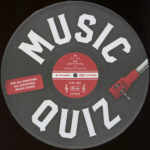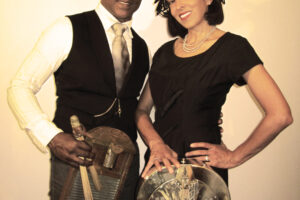Samuel Charters, a very important historian of the blues, died March 11. He was 85 years old.
This is from his profile at Wikipedia:
Charters had for years been doing research into the history of jazz, but in the 1950s he also began to study the blues. Noticing that his copy of the bluesman Robert Johnson’s recordings were recorded in San Antonio, Charters set out for Texas in 1953 to discover what he could about Robert Johnson, but also about another favorite musician, Blind Willie Johnson. For Charters and his wife, Ann Charters, the search for Robert Johnson began years of doing field recordings (initially for Folkways Records throughout the United States, and then in the Bahamas in 1958 where he made the first recordings of Joseph Spence). Their 1959 recordings of the Texas bluesman Lightnin’ Hopkins proved instrumental to Hopkins’ rediscovery. Also in 1959, Charters published his very influential book The Country Blues, the first history of blues and an absorbing account of his search for the bluesmen themselves, as well as issuing the companion album to accompany it.
During the years of field work in the 1950s that lead to the publication of The Country Blues, Charters always felt overwhelmed with the amount of work required to properly document the music of black Americans and hoped that his writing would encourage others to join him. “I always had the feeling that there were so few of us, and the work so vast. That’s why I wrote the books as I did — to romanticize the glamor of looking for old blues singers. I was saying, ‘Help! This job is really big, and I really need lots of help!’ I really exaggerated this, but it worked! My God, I came back from that year in Europe and I found kids doing research in the South . . . They almost all came to me at some point, they wrote me a letter saying this is what I’m doing.” (Ismail, 2011, p. 259)
The very interesting featurette above was made at the University of Connecticut, which houses the Samuel and Ann Charters Archives of Blues and Vernacular African American Musical Culture.
Homepage image: RFF Records via The New York Times.











Recent Comments